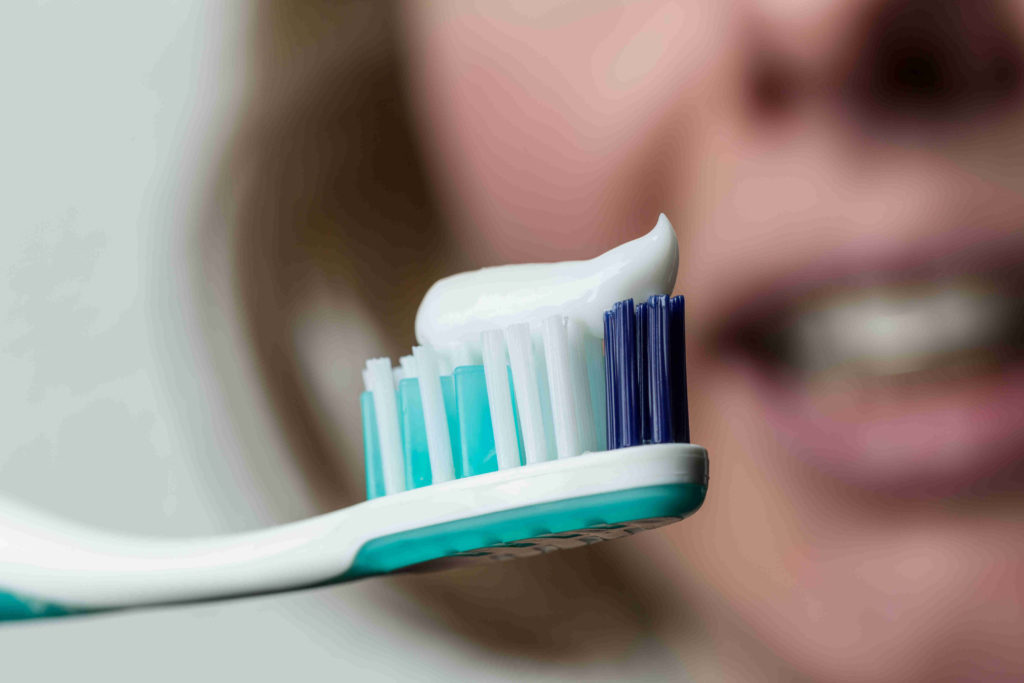Fluoride - or fluoride salts - occurs naturally in many minerals. It is found in earth, water, plants and air, as well as in small quantities in the human body. In living organisms, it is mainly responsible for the strength of teeth and bones. In the wake of recent controversies surrounding the consumption of flurorets, HELVIDENT takes stock of the official recommendations in Switzerland.
Are fluoride salts toxic?
The confusion between fluoride and fluorine (a toxic gas) has led to many misinterpretations. Fluoride, which we ingest in minute quantities in our diet or when brushing our teeth, is totally harmless to our health. L'Federal Dental Association (BZÄK) even states: "It has been scientifically proven that fluoride is almost 10 times less toxic than table salt".
The first signs of poisoning appear above the Probable Toxic Dose (PTD) threshold. This corresponds to 5 mg of fluoride per kilo of body weight.
The risk of overdose is very rare. It may occur :
- For an adult weighing 60 kg: after swallowing 3 tubes of ordinary fluoride toothpaste (75 ml, 1400 ppm fluoride), diluted or undiluted.
- For a 5-year-old child weighing 18 kg: after swallowing approximately 2.5 tubes (75 ml, 500 ppm fluoride).
Fluoride and drinking water in Switzerland
The concentration of fluoride salts in Swiss drinking water is regulated and clearly limited by federal legislation. The Swiss Society of Nutrition (SSN) recommends an adequate fluoride intake of between 3.1 and 3.8 mg per day for adults. The amount contained in food and tap water is very low compared to these recommendations. For this reason, we strongly recommend the use of dental hygiene products containing fluoride salts, as well as fluoridated cooking salt.
Fluoride concentration in toothpastes
Visit Swiss Society of Dentists SSO recommendsuse of fluoride toothpastes. In fact, most manufacturers follow the Cosmetics Ordinance and the recommendations of professional bodies such as the SSO when it comes to the concentration of fluoride in toothpastes. This is indicated by the abbreviation "ppm", which stands for "parts per million".
Most adult toothpastes contain 1400 ppm fluoride. In other words, one gram of toothpaste contains 1400 millionths of a gram, or 1.4 mg. A 75 ml tube of toothpaste therefore contains a total of around 105 mg of fluoride.
A 1 cm dose of toothpaste used for brushing teeth (75 ml, 1400 ppm fluoride) contains approx. 0.7 mg fluoride. A dab of children's toothpaste (75 ml, 500 ppm fluoride) contains approx. 0.15 mg.
Effective tooth protection
Visit caries is caused by plaque bacteria, which convert sugar into acids. Fluoride products are effective in preventing its development. Their action is threefold:
- In direct contact with the teeth, they increase the enamel's resistance to acid attack.
- They also slow down the decalcification caused by the acids secreted by plaque bacteria.
- Fluoride salts also help remineralize tooth enamel through the action of saliva. This can block the development of incipient decay, or even reverse it.
The use of fluoride toothpaste is therefore essential in the prevention of cavities. In addition to strengthening the mineral structure of teeth, fluoride forms a protective layer on the tooth surface.
Useful information for parents
For children, fluoride toothpaste helps harden and strengthen tooth enamel as soon as it appears. Dentists in Lausanne and Fribourg recommend using a special fluoride toothpaste for children from the age of six. first baby tooth. Choose a dosage of 500 ppm fluoride. When permanent teeth erupt (from age 6 onwards on average), the Swiss Society of Dentists SSO recommends a toothpaste containing up to 1500 ppm fluoride salts. In case of increased risk of tooth decay, please consult your dentist and adjust the fluoride concentration accordingly.
Don't hesitate to make an appointment with a HELVIDENT dentist or dental hygienist in our dental clinics in Lausanne, Fribourg and Aigle.

